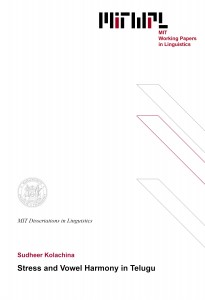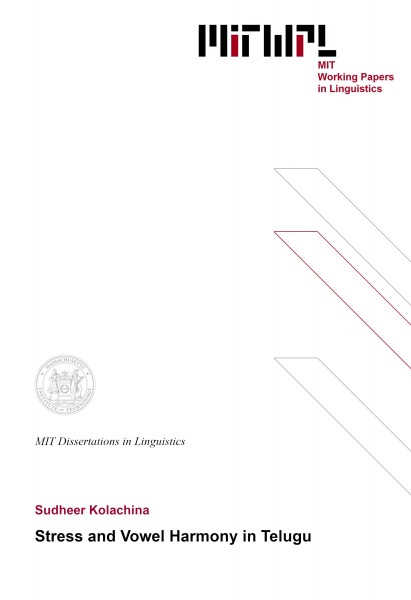Stress and Vowel Harmony in Telugu
Sudheer Kolachina, 2016
This thesis presents a study of vowel harmony in Telugu, a Dravidian language. Vowel harmony in this language is manifest primarily in the form of vowel alternations in paradigms triggered by suffixes. I present a robust factual generalization that holds true of alternations in different types of nominal and verbal stems- vowels in unstressed syllables change to agree with a suffix vowel, with respect to either backness or height. Stress is the main conditioning environment for blocking of harmony. I show that secondary stress in Telugu can be inferred based on the pattern of vowel harmony. I account for this pattern of stressed vowels resisting harmony using positional faithfulness. Since stress-conditioned harmony is relatively uncommon in natural language, the account of vowel harmony in Telugu presented here helps to fill out the typology of stress-harmony interactions. I also report a production experiment which shows that secondary stress has a significant effect on syllable duration and is therefore, phonetically ‘real’ in this language.
Thesis Supervisor: Edward Flemming Title: Associate Professor of Linguistics
